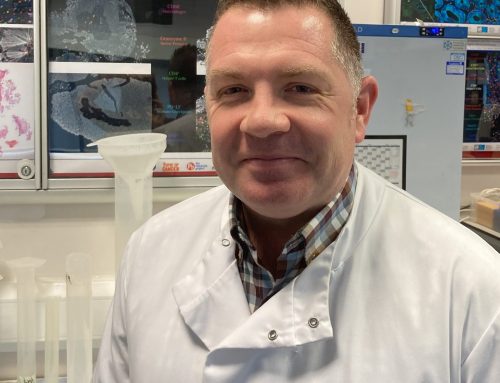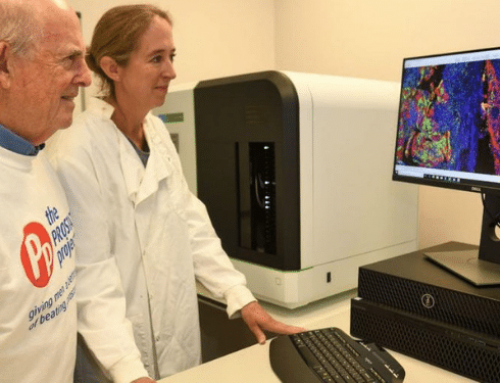
The SUN Study
The SUN study is an example of a successful project delivered with the support of Prostate Project charity. The SUN study is a biobank of serum and DNA samples from patients with prostate cancer that started approximately 9 years ago. The primary purpose of the SUN study was to collect blood samples from men with a diagnosis of prostate cancer and compare these with samples from an age-related group of healthy men to detect new biomarkers and aid in the early detection and monitoring of prostate cancer. Over the next 2-3 years we consented approximately 600 men, of those 314 men had a diagnosis of prostate cancer and 278 were healthy volunteers. The study has an NHS ethics approval, protocol and consent form and although the active collection has now stopped the biobank contains serum samples, DNA samples and some urine samples.
Influence of the Study
The samples collected were subsequently used in many research projects that looked into the early diagnosis and prognosis of prostate cancer. One of the main collaborations is the PRACTICAL consortium. PRACTICAL is a collaborative international group of researchers interested in inherited risk of prostate cancer. Many groups are conducting studies with the aim of identifying genes that may be related to the risk of prostate cancer. The aim of the group is to combine data from many studies, to provide a reliable assessment of the risks associated with these genes. Co-ordination of PRACTICAL is funded by Cancer Research UK. This collaboration with scientists all over the world has led to a number of new discoveries and new significant findings are reported in scientific journals. The most recent are shown here:
Other Studies
Other studies include the new discovery of genetic abnormalities called SNIP that predispose men to get prostate cancer. This research included samples from 87, 040 men and has been published in Nature Genetics in 2015. Another example is a large study looking at the link of high body mass index and tall stature with the risk of prostate cancer. This analysis was conducted looking at the samples and information gathered from close to 50000 men and has also been published. We also collaborate with scientists in Canada who look into new information that can be gathered from small fragments of nucleic acids in the cell that can help in defining whose cancer is more aggressive. These nucleic acid fragments are called SNORA55 and the research has now been published in Molecular Oncology Journal.
This resource is available to researchers internationally and we are pleased to announce that we are now members of National Cancer Research Institute’s Confederation of Cancer Biobanks (CCB). CCB is a consortium of organisations based in the UK that are involved in the development, management and use of biobank resources for cancer research. Please contact Dr Agnieszka Michael for further details.
Thanks to Prostate Project we are one step closer to understanding prostate cancer.



